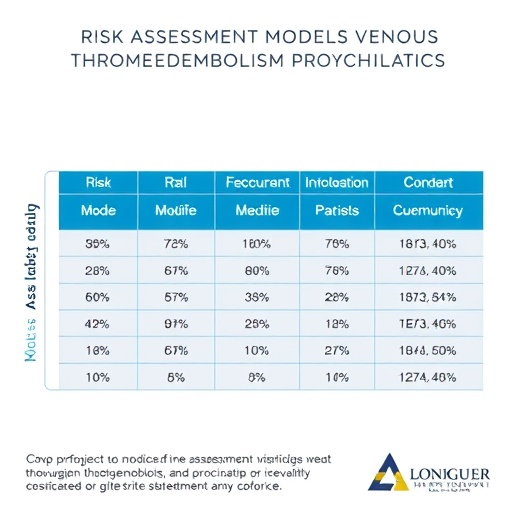PROTECT YOUR DNA WITH QUANTUM TECHNOLOGY
Orgo-Life the new way to the future Advertising by AdpathwayIn recent years, the complex interplay of genetics and reproductive health has garnered significant attention from scientists and physicians alike. One of the most intriguing mysteries in the realm of human reproduction is the phenomenon of total fertilization failure—cases where oocytes (egg cells) fail to be fertilized despite being in a seemingly conducive environment. A groundbreaking study conducted by Ata et al. sheds light on this enigma, revealing the genetic underpinnings that may contribute to such failures. This article outlines the pivotal findings of their research and emphasizes the potential implications for reproductive medicine.
At its core, the study orchestrated by Ata and collaborators investigates the mutational disruptions within transcription factor binding sites and regulatory networks. Such disruptions could profoundly affect gene expression, thereby influencing cellular processes critical for successful fertilization. Transcription factors are proteins that bind to specific DNA sequences, and their role is akin to that of conductors in an orchestra; they regulate the timing and harmony of gene expression, which is essential for normal cellular development and function. Their findings suggest that certain mutations can lead to a cascade of errors at the genomic level, making fertilization impossible.
Understanding how transcription factors operate is key to deciphering the biological mystery surrounding unexplained total fertilization failures. The study highlights the importance of these regulatory proteins in the cellular milieu surrounding the oocyte, which is crucial for the successful interaction with sperm. If these proteins are dysfunctional due to genetic mutations, the result can only be a failure to achieve fertilization, regardless of sperm health or other external factors.
Moreover, statistically, unexplained total fertilization failure occurs in a significant number of assisted reproductive technology cycles. The implications of Ata et al.’s research extend beyond theoretical understanding, as recognizing genetic markers associated with transcription factor disruptions could revolutionize pre-implantation genetic testing. This advancement would not only allow for better embryo selection but may also lead to tailored interventions that can correct or bypass these genetic challenges.
The study’s methodology was rigorous, employing both in vitro fertilization techniques and genomic analyses to identify the specific mutations that correlate with fertilization failure. By sequencing the genomes of individuals experiencing these issues, the researchers were able to pinpoint anomalies associated with key transcription factors. The results were illuminating; they revealed a surprising number of candidate mutations that had not been previously associated with infertility, suggesting a need for a paradigm shift in our understanding of reproductive genetics.
In the broader context, the findings from this research align with the growing body of evidence indicating that infertility is often more complex than merely issues related to sperm or egg quality. Environmental factors, lifestyle, and genetic predispositions all interplay in intricate ways, contributing to reproductive outcomes. Therefore, individualizing fertility treatments, supported by genetic insights, could improve success rates for couples facing infertility challenges.
The potential for therapeutic advancements stemming from this research cannot be overstated. Should healthcare professionals be able to identify specific transcription factor mutations prior to treatment, they could tailor hormonal stimulation protocols or even integrate gene therapy techniques into their practices. Such approaches could mitigate the risks associated with unexplained total fertilization failure and enhance the likelihood of achieving successful pregnancies.
Furthermore, the study raises ethical questions about how we approach genetic testing in reproductive health. While the enhancement of fertility outcomes is paramount, the implications of identifying and potentially modifying genetic markers must be thoughtfully considered. The balance of advancements in reproductive technology with ethical responsibility will require careful navigation as we forge new paths in this field.
Interestingly, the research conducted by Ata et al. represents a mere window into a much larger exploration of the human genome and its vast potential ramifications on reproductive health. As more researchers delve into the role of genetics in infertility, we may uncover an entire landscape of previously unknown factors that contribute to reproductive success or failure. The promise of precision medicine beckons, urging us to harness our understanding of genetics to address infertility on an individual level.
In conclusion, the study by Ata and colleagues not only advances our understanding of the scientific mechanisms behind total fertilization failure but serves as a clarion call to interdisciplinary collaboration in the fields of genetics, reproductive medicine, and ethical guidelines. Our approach to infertility must evolve in tandem with scientific discoveries, ensuring that every couple has the opportunity to understand and address the unique challenges they face in their journey toward parenthood.
As the scientific community continues to unpack the complexities of the human genome, we are reminded of the incredible potential that lies within our grasp to improve reproductive health outcomes. This study is a significant step forward in decoding the intricate web of genetics underlying fertility, and it signals that the future of reproductive medicine might be closely intertwined with personalized genomic insights.
In the end, as we advance our grasp on the genetics of reproduction, it is clear that the quest for understanding total fertilization failure is not just about science; it’s about hope for countless individuals and couples yearning to start their family. Continued research, like that conducted by Ata et al., exemplifies the progress we can achieve when curiosity meets scientific rigor, ultimately enriching our approaches to fertility and reproductive health for generations to come.
Subject of Research: Genetic factors influencing total fertilization failure in human reproduction.
Article Title: Mutational disruption of transcription factors binding and regulatory networks in a case of unexplained total fertilization failure.
Article References:
Ata, M., Choucair, F., Djekidel, M.N. et al. Mutational disruption of transcription factors binding and regulatory networks in a case of unexplained total fertilization failure.
J Transl Med 23, 1224 (2025). https://doi.org/10.1186/s12967-025-07038-5
Image Credits: AI Generated
DOI: https://doi.org/10.1186/s12967-025-07038-5
Keywords: genetics, reproduction, total fertilization failure, transcription factors, infertility.
Tags: Ata et al. research findingscellular processes in fertilizationfertilization failure genetic causesgene expression in fertilizationgenetic underpinnings of fertilization failureimplications of genetic research in fertilitymutations in transcription factorsoocyte fertilization processregulatory networks in human reproductionreproductive health and geneticsrole of transcription factors in reproductiontranscription factor binding sites


 4 hours ago
1
4 hours ago
1





















 English (US) ·
English (US) ·  French (CA) ·
French (CA) ·